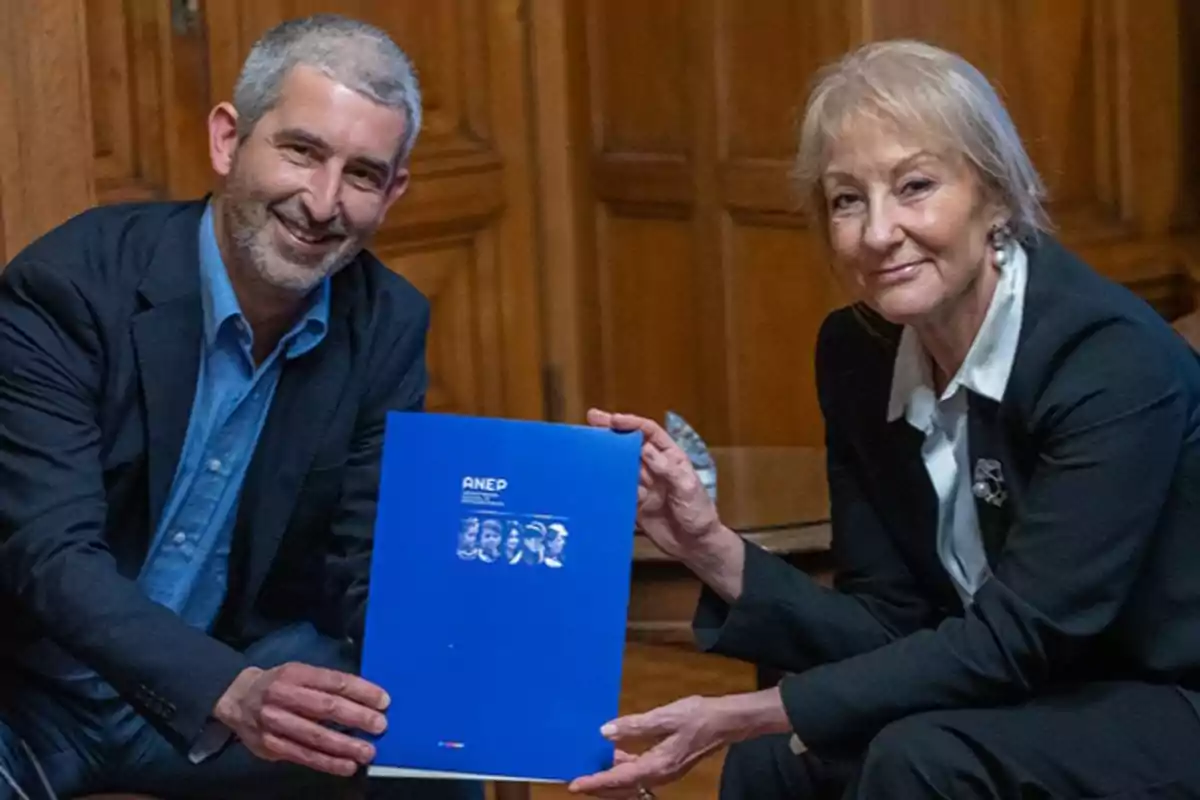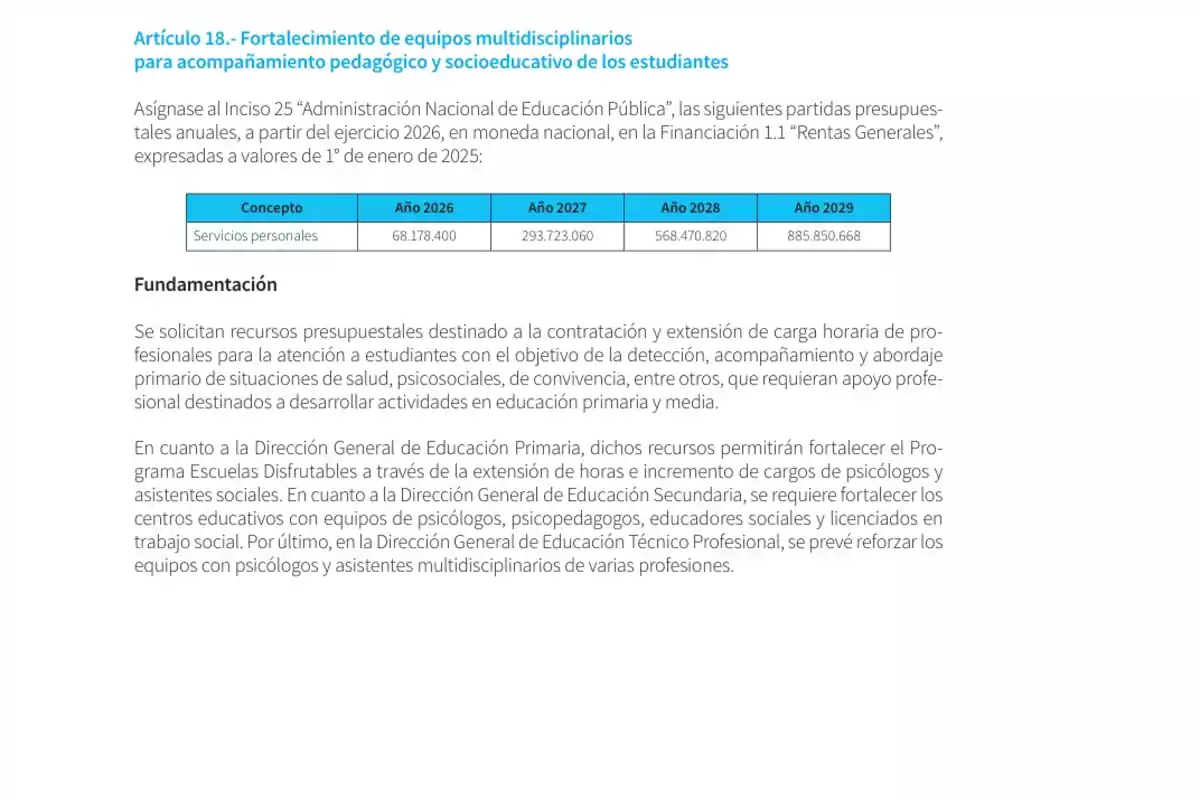
Total delirium: ANEP will allocate 1.5 billion to finance ESI
It includes substantial armies of psychologists and social workers
The National Public Education Administration (ANEP) requested a budget increase of more than 600 million dollars by the end of the five-year period, equivalent to 4% of the Gross Domestic Product, to finance welfare policies and the deep implementation of the progressive rights agenda.
Addressing infrastructure
The Budget Project for 2025-2029 presented by ANEP clearly demonstrates the paradox in which the left lives: it requests more public resources to, in theory, benefit those who, in practice, are harmed by greater tax pressure.
ANEP establishes the granting of an annual bonus of $2,500 per student (art. 6) to families, starting in 2026. Its implementation will require almost 1,000 million pesos annually, which Uruguayan households will finance without perceiving a real benefit from the school bonus. For next year, they will also expand food coverage to lower secondary education with an amount of $590,000,000 annually.
You may also be interested in...
Inclusive education and curricular justice
Although education in Uruguay is publicly accessible, the educational plan for this period will focus on the "elimination of barriers" so that vulnerable populations, ethnic minorities, migrants, and the LGBTIQ+ population can access the educational system.

In this regard, it will prioritize the "overcoming of learning inequities and the unequal distribution of knowledge," the modification of "academic regimes that reinforce the reproduction of inequalities," the "humanization of treatment and attention to the violation of rights," as well as the development of Memory "from a perspective of diversity and interculturality."
With the aim of strengthening "pedagogical and socio-educational support" for students, they will resort to hiring numerous multidisciplinary teams, allocating a budget of $68,178,400 for 2026, rising to $885,850,668 in 2029, according to Article 18.
You may also be interested in...
The rights agenda in education
Since the first Frente Amplio administration, with the creation of the Sexual Education Commission in 2005 and, subsequently, with the implementation of the Directorate of Human Rights within CODICEN in 2006, the Uruguayan educational system has been developing policies according to the guidelines of international organizations such as UNFPA, WHO, UNAIDS, UN Women, among others.
Among the recent proposals, ANEP announced the creation of the Specialized Unit on Gender and Diversity (UEGD) within the Directorate of Human Rights. The objectives will focus on incorporating the perspective of gender and sexual diversity at all educational levels.
They also announced the creation of an "Observatory of situations of rights violations" in coordination with the Secretary of Human Rights of the Presidency, Collette Spinetti.
Sexuality as a right
Based on the argument that "comprehensive sexual education is a right enshrined in national and international legal commitments," they will impose comprehensive sexual education (CSE) with a gender and diversity perspective in all educational pathways and teacher training programs.
For this purpose, Article 14 requests an annual budget of $74,107,636 for 2026, which will increase to $156,756,710 in 2027, 2028, and 2029. Twenty-three reference centers will be established throughout the country by 2027, institutionalizing CSE as a formal pedagogical space within ANEP.
You may also be interested in...
"Memory" as a right
Another measure will be the "area of Memory and territory from a perspective of diversity and interculturality." For this, they will create the Commission on Memory in Education, projecting an "intersectional work between memory, diversity, and gender (Afro-descendants, disability, human mobility, social conflict)."
They will build the "pedagogy of memory" around the "recent past" in coordination with the Human Rights Directorates of MEC and the Secretariat of the Presidency for the Recent Past, headed by Alejandra Casablanca.

They will also create the Paulina Luisi Library, with collections dedicated to the rights agenda: "Stella Cerruti Basso" (CSE), "Ibero Gutiérrez" (memory), "Marcelo Viñar" (promotion of rights), and "Rosa Luna" (diversity).
More posts: